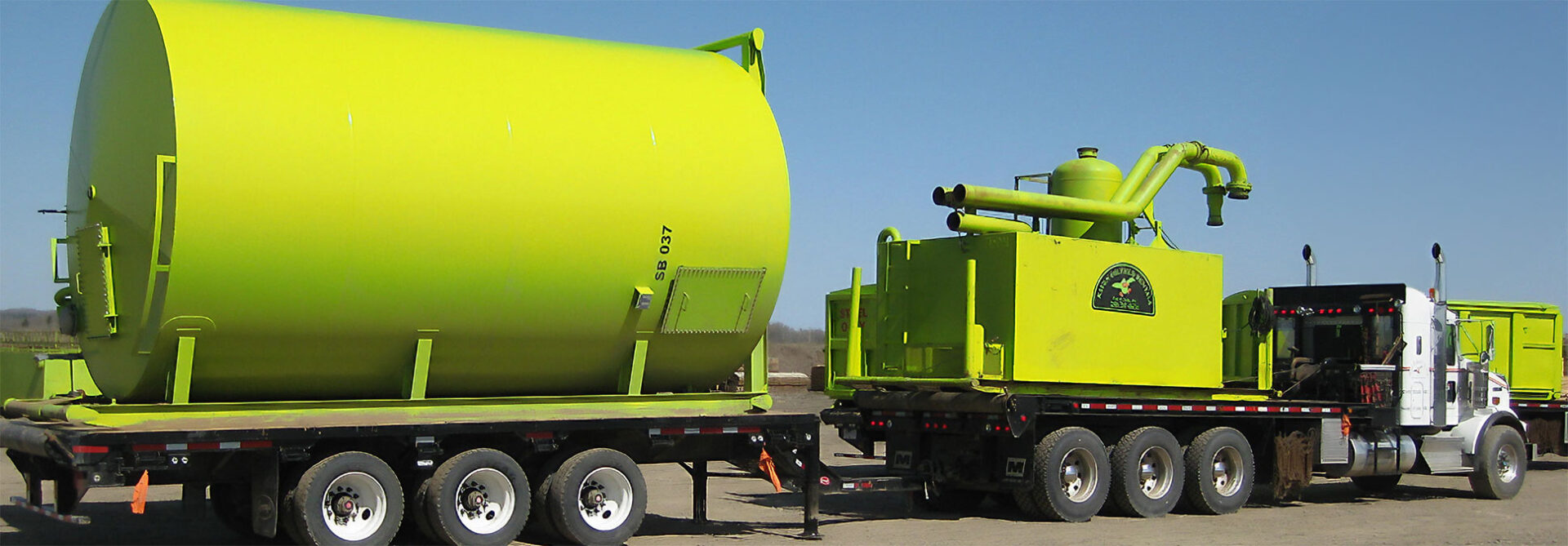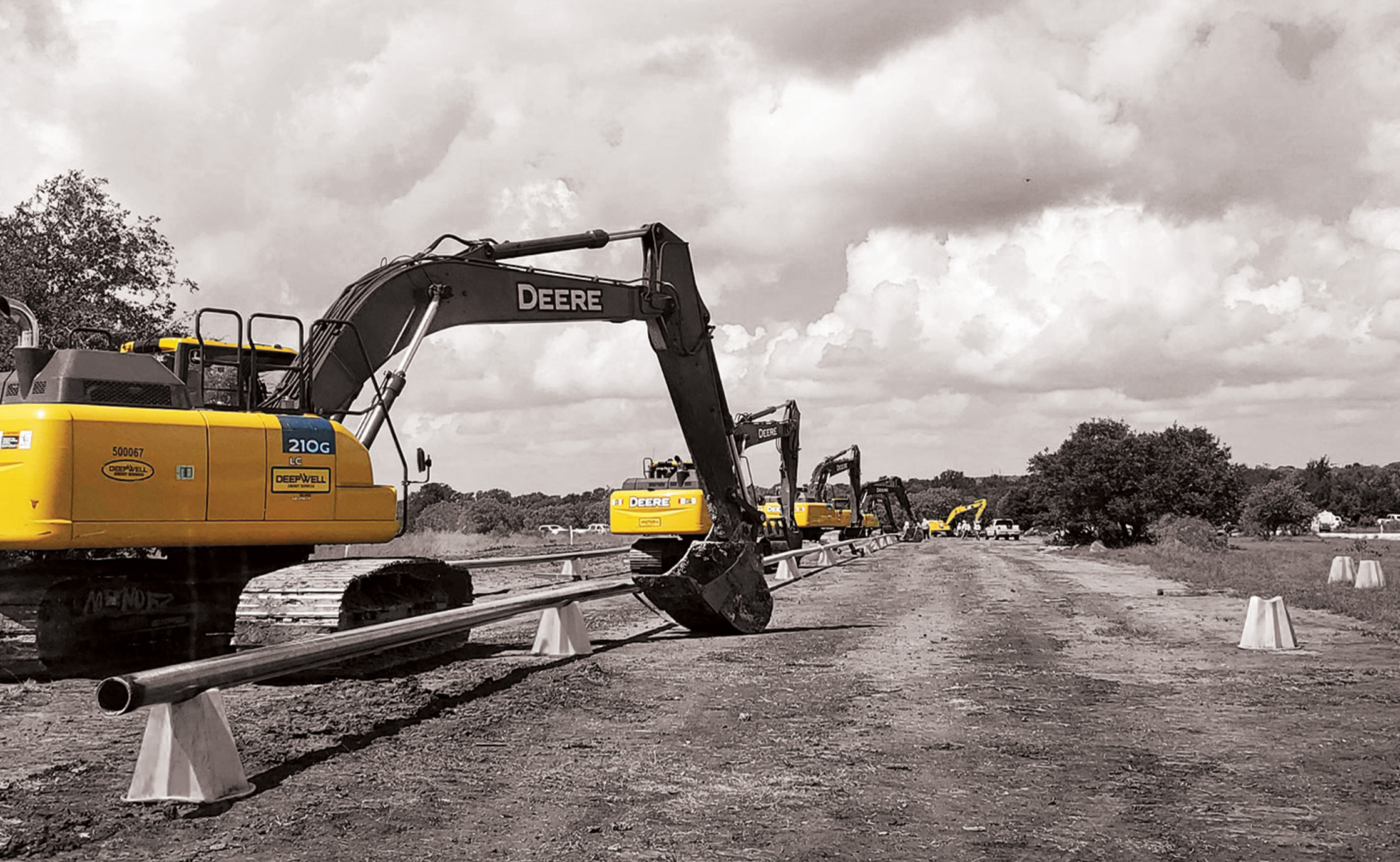A Comprehensive Overview to the Numerous Kinds Of Oil Field Equipment and Pipeline Equipment Available
The oil and gas sector counts greatly on customized equipment for efficient extraction and transportation. Various kinds of machinery, from drilling rigs to storage space containers, play vital roles in this complex process. Each piece of equipment serves distinct functions that add to overall functional success. Understanding these components is crucial for anyone associated with the sector. As the industry evolves, so too do the innovations that sustain it. What improvements are on the perspective?

Drilling Rigs: The Backbone of Oil Expedition
Drilling rigs work as the important equipment in the domain of oil expedition, making it possible for companies to accessibility hydrocarbon books hidden deep below the Planet's surface. These rigs are available in numerous kinds, including land rigs, offshore rigs, and mobile devices, each designed to run in specific atmospheres. Geared up with sophisticated technology, drilling rigs can permeate geological developments with precision, making certain efficient resource extraction. The architectural honesty and functional capabilities of these rigs are important, as they must stand up to extreme problems and considerable stress. Furthermore, the selection of a boring gear influences the overall job cost and timeline, making it a crucial factor to consider for oil business looking for to optimize their expedition initiatives and make best use of productivity in their operations.
Pumps: Necessary for Liquid Motion
In the oil extraction process, the function of pumps is considerable, assisting in the motion of fluids throughout various phases of manufacturing. Pumps are crucial for moving unrefined oil, water, and other fluids from below ground tanks to the surface and then with pipes to refineries. They are available in numerous kinds, consisting of centrifugal, favorable displacement, and submersible pumps, each offering certain objectives based upon the liquid features and functional requirements. Centrifugal pumps are frequently utilized for their effectiveness in high-flow applications, while favorable variation pumps master dealing with viscous liquids. The choice of pump impacts general effectiveness, operational safety, and maintenance prices. Correct choice and upkeep of pumps are important for optimizing production and reducing downtime in oil field operations.
Valves: Controlling Flow and Pressure

Shutoffs play an important duty in handling the flow and stress of liquids within oil areas and pipelines. Numerous sorts of shutoffs serve distinct applications, each developed to satisfy certain functions essential for efficient procedure - Superior Rentals near me. Understanding the attributes and uses these valves is essential for enhancing system efficiency and safety and security
Kinds of Valves
Necessary parts in oil area operations, valves play a crucial role in controlling the circulation and stress of fluids within pipelines and equipment. Various types of shutoffs are utilized to satisfy the varied demands of oil and gas production. Typical types include gateway valves, which supply a straight-line circulation and minimal stress decline; globe shutoffs, understood for their throttling capacities; and round shutoffs, recognized for their quick on/off control. Furthermore, check valves prevent backflow, while butterfly valves supply a light-weight service for controling flow. Each valve type is designed with specific products and arrangements to hold up against the rough conditions frequently discovered in oil areas, making certain dependability and efficiency in operations. Understanding these kinds is important for effective system administration.
Valve Applications and Features
While different types of valves offer distinctive purposes, their main applications rotate around regulating flow and pressure within oil and gas systems. Valves such as entrance, globe, and round shutoffs regulate liquid movement, guaranteeing peak performance and safety and security. Entrance valves are generally made use of for on/off control, supplying very little flow resistance. Globe shutoffs, on the various other hand, offer accurate flow regulation, making them appropriate for throttling applications. Sphere shutoffs are preferred for their fast operation and limited securing capacities. Additionally, stress alleviation valves are essential for protecting against system overpressure, safeguarding devices stability. Overall, the appropriate choice and application of valves boost operational effectiveness, guaranteeing the dependable transport of oil and gas with pipelines and handling facilities.
Compressors: Enhancing Gas Transport
Compressors play an important role in the reliable transportation of gas, ensuring that it relocates efficiently via pipes over cross countries. These gadgets raise the stress of natural gas, enabling it to conquer rubbing and elevation changes within the pipeline system. In addition, compressors promote the harmonizing of supply and need, suiting variations in usage this content and manufacturing rates. Various kinds of compressors are used in the market, consisting of centrifugal, reciprocating, and rotating screw compressors, each offering distinct benefits based on the functional demands. Routine maintenance of these compressors is important to take full advantage of effectiveness and decrease downtime, ultimately adding to a reliable gas transport network. Their essential function underscores the relevance of compressors in the total oil and gas infrastructure.
Storage Tanks: Safe and Efficient Liquid Monitoring
Effective transportation of natural gas depends on different sustaining systems, among which is the appropriate monitoring of tank. These storage tanks play an important function in safely containing fluids, ensuring that functional effectiveness is maintained while reducing ecological threats. Built from long lasting materials, they are created to endure high stress and corrosive components. Properly sized and purposefully situated, storage space tanks facilitate the smooth flow of natural gas and various other fluids, protecting against bottlenecks in supply chains. Normal upkeep and surveillance are crucial to spot leaks or structural concerns, promoting safety and compliance with regulatory standards. Eventually, the reliable management of tank is crucial for the general integrity and reliability of the oil and gas market's liquid handling systems.
Pipeline Solutions: Infrastructure for Transport
Pipeline systems function as the foundation of the oil and gas market, helping with the reliable transportation of hydrocarbons over large distances. These systems contain different elements, consisting of pipelines, valves, pumps, and compressors, all carefully made to assure seamless flow. The materials used in pipeline construction, often explanation steel or high-density polyethylene, are selected for toughness and resistance to corrosion. Pipeline networks can cover across land and water, connecting production sites to refineries and warehouse. Furthermore, progressed innovation allows real-time monitoring of flow rates and stress degrees, improving functional performance. The critical placement of these pipelines reduces ecological impact while taking full advantage of resource ease of access, thereby playing an important duty in meeting energy needs globally.
Safety Equipment: Making Sure Employee and Environmental Security
The procedure of pipeline systems, while important for power transportation, also presents considerable security difficulties for workers and the environment. Safety devices plays a significant role in mitigating these risks. Personal safety tools (PPE) such as safety helmets, gloves, and non-slip footwear safeguards workers from physical hazards. Furthermore, gas discovery systems check for leakages, ensuring that harmful materials do not present a hazard to employees or the surrounding environment. Emergency situation closure systems are important for quickly stopping operations throughout he said a dilemma, preventing possible catastrophes. Spill control products, consisting of absorbents and obstacles, are fundamental for lessening ecological impact. Overall, spending in comprehensive safety and security devices is crucial for maintaining operational honesty and shielding both employees and the setting in the oil and gas industry.

Frequently Asked Questions
Just how Do I Select the Right Oil Field Equipment for My Task?
Selecting the appropriate oil area equipment entails evaluating job specifications, budget plan restrictions, and functional needs. Consider aspects such as tools reliability, compatibility with existing systems, and the provider's credibility to ensure peak performance and security.
What Are the Upkeep Needs for Oil Field Equipment?
Maintenance needs for oil area devices include routine evaluations, lubrication, and prompt fixings. Operators should likewise abide by manufacturer guidelines, screen performance metrics, and guarantee conformity with safety and security laws to enhance longevity and efficiency.

Just How Can I Make Certain Compliance With Environmental Laws?
To assure conformity with environmental policies, business should conduct regular audits, apply best methods, spend in training, keep appropriate documents, and stay updated on regulations (Superior Rentals near me). Cooperation with ecological firms can also enhance adherence to policies
What Is the Typical Life-span of Pipeline Equipment?
The ordinary lifespan of pipeline equipment normally ranges from 20 to 50 years, relying on elements such as worldly quality, environmental problems, and maintenance methods. Regular inspections can considerably affect longevity and operational effectiveness.
Just how Do I Safely Deliver Oil Field Equipment to Remote Locations?
Delivering oil field devices to remote locations needs mindful planning, including path analysis, securing licenses, making use of ideal vehicles, and guaranteeing safety and security protocols are followed. Correct training and interaction amongst teams are vital for successful transport.